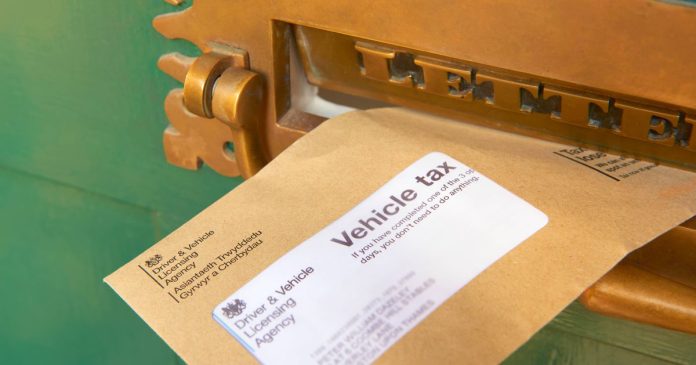Drivers of certain vehicles have been given a heads up to watch their mail for communication from the DVLA in the following weeks, which could be a first-time experience for some. With April 2025 ushering in changes to Vehicle Excise Duty (VED) regulations, keeping a car roadworthy has become costlier for a number of motorists.
For electric vehicle (EV) owners, in particular, these new changes are hitting their wallets as they now become liable for road tax payments. Matt Walters from Ayvens weighed in on the matter, stating that this move contradicts the Government’s drive to promote EV usage by increasing running costs.
Mr Walters said: “New cars bear the brunt of tax changes. This has left fleets and private motorists in the dark about a tax policy that could cost electric vehicle drivers an additional £1,300 over a four-year lease contract.”
He also outlined several obstacles confronting fleet operators aimed at reducing carbon emissions: “Despite growing pressure on fleets to reduce CO2 emissions, operators are facing challenges with reduced payload and range, charging networks with spaces designed for cars, and additional administrative burdens for the largest vans.”
For over ten years, electric cars in the UK had a tax-free edge to boost their appeal compared to traditional fuel-powered cars, reports the Express. Nevertheless, with the tide turning as EVs top a million on British roads, the DVLA decided to strip away this advantage starting April 1, 2025.
The catch is, while EV users were spared from the VED hit immediately, they’ll start feeling the pinch once their current tax policy comes up for renewal.
UK drivers have been afforded the convenience of paying their road tax up to two months in advance – this handy little reminder typically arrives courtesy of a letter from the DVLA on the fifth day of the month preceding when the payment is due.
In a tweak to the rules by the DVLA, all electric cars bought from April 1, 2017 to March 31, 2025 are now on the hook for the same annual flat rate of £195 – the very amount that petrol and diesel vehicles cough up.
Brand spanking new electric models will get slapped with a tax fee of £10 for their debut year, followed by £195 for each successive year.
But watch out if you’ve got your eyes on a model with a price tag north of £40,000; these posh rides come with the hefty addition of an ‘expensive car supplement’, totting up to £425 every year from the second to the sixth.
So, opt for one of those sought-after electric darlings like the Tesla Model Y or the Audi Q4 e-tron, and you’ll be parting with £620 annually in taxes.
Despite this financial hit, car buyers didn’t lose their appetite for electric beauties during March 2025, which witnessed an impressive 69,313 electric models flying off the shelves – a record-smashing feat indeed.
Mike Hawes, top dog at the Society of Motor Manufacturers and Traders (SMMT), cheered the spike in sales but flagged down concerns about future growth without Government backing.
He said: “A welcome return to growth, and substantial growth at that, is a fillip for the industry. Moreover, with March being the best month ever for electric car registrations, there is reason for optimism.
“Manufacturers remain committed to the market decarbonisation the country and the environment demands, but we need sustained growth, not a short-term bubble driven by unsustainable manufacturer discounting and drivers rushing to beat a tax hike.”
At Reach and across our entities we and our partners use information collected through cookies and other identifiers from your device to improve experience on our site, analyse how it is used and to show personalised advertising. You can opt out of the sale or sharing of your data, at any time clicking the “Do Not Sell or Share my Data” button at the bottom of the webpage. Please note that your preferences are browser specific. Use of our website and any of our services represents your acceptance of the use of cookies and consent to the practices described in our Privacy Notice and Cookie Notice.





